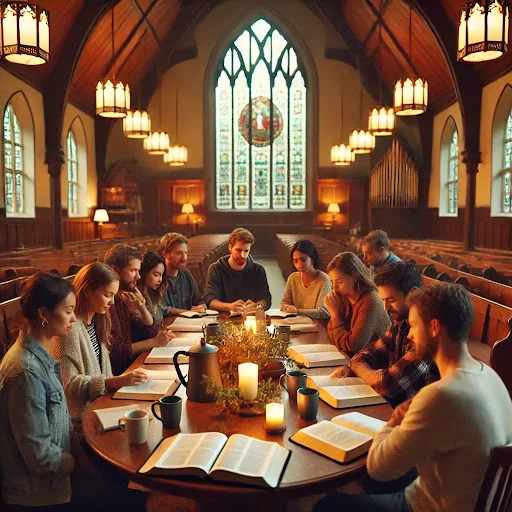Here is the image of a Bible study session in a church, with a group of people gathered around a table in a peaceful and welcoming atmosphere.
--
In the Universalist tradition, which emphasizes the idea that all people will ultimately be reconciled with God, the story of Sodom and Gomorrah is typically interpreted in a non-literal and symbolic way. Universalism rejects the notion of eternal damnation, instead focusing on God's love, mercy, and the eventual salvation of all souls.Reconciliation of the Sodom and Gomorrah story might involve the following interpretations:
1. Symbolic Meaning of Destruction: Rather than focusing on the destruction as punishment, Universalists might view it as symbolic of the consequences of societal sin—such as injustice, violence, and oppression. The destruction of these cities can be seen as a warning about the harmful effects of these behaviors, rather than as an act of eternal damnation.
2. Divine Mercy and Love: Universalists emphasize that God's love and mercy extend to all, even those who may seem most lost or sinful. The destruction of Sodom and Gomorrah could be seen not as an eternal judgment, but as a moment in a larger narrative where God's love seeks to eventually heal and redeem all people.
3. Hope for Transformation: The Universalist tradition believes in the eventual salvation and reconciliation of all souls with God. In this light, even those who perished in Sodom and Gomorrah are not permanently damned but will ultimately find redemption, just as all people will eventually come to understand and embrace God's love.
Thus, reconciliation in Universalism involves interpreting these biblical events as part of a broader story of divine mercy and the ultimate restoration of all souls.




No comments:
Post a Comment